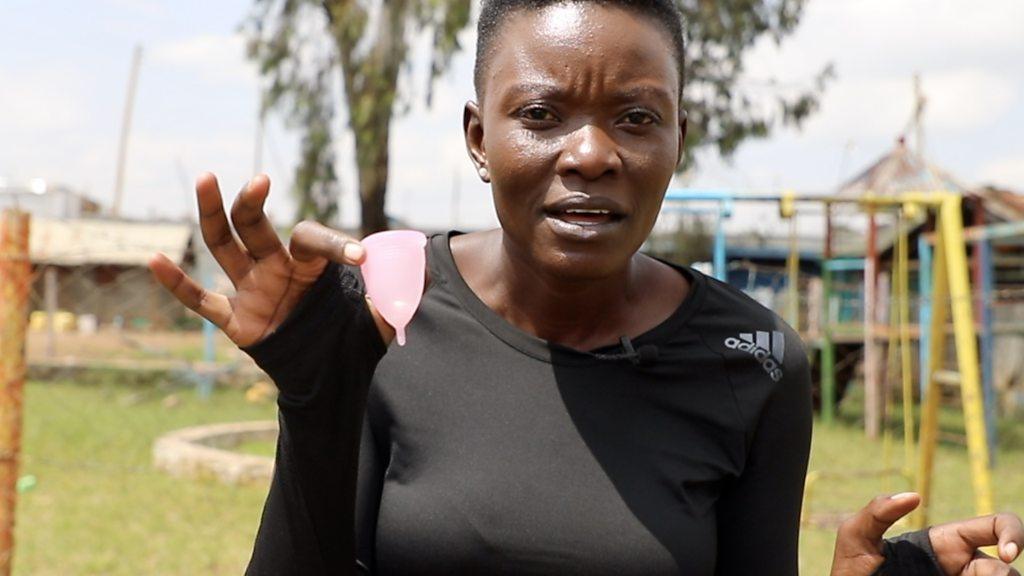Annabel, 12, helps Somerset charity fight Kenyan period poverty
- Published
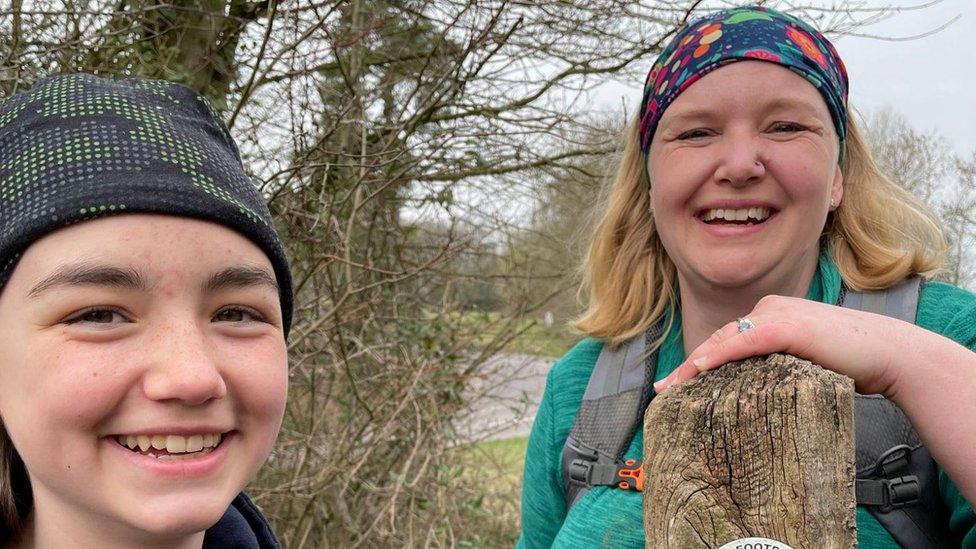
Annabel and her mother Emma will complete their walking challenge on 10 April
A 12-year-old girl has almost completed a 117-mile (188km) walk to help Kenyan girls in period poverty after being inspired by a pen-pal project.
Annabel and her mother Emma are due to finish the Somerset Mendip Ring for St Peter's Life-Line, external on 10 April.
The pair have exceeded their initial target, external of £4,705 to fund a Kenyan factory that will make free sanitary pads for local school girls.
The charity's head said he was "in awe" of Annabel's "determination".
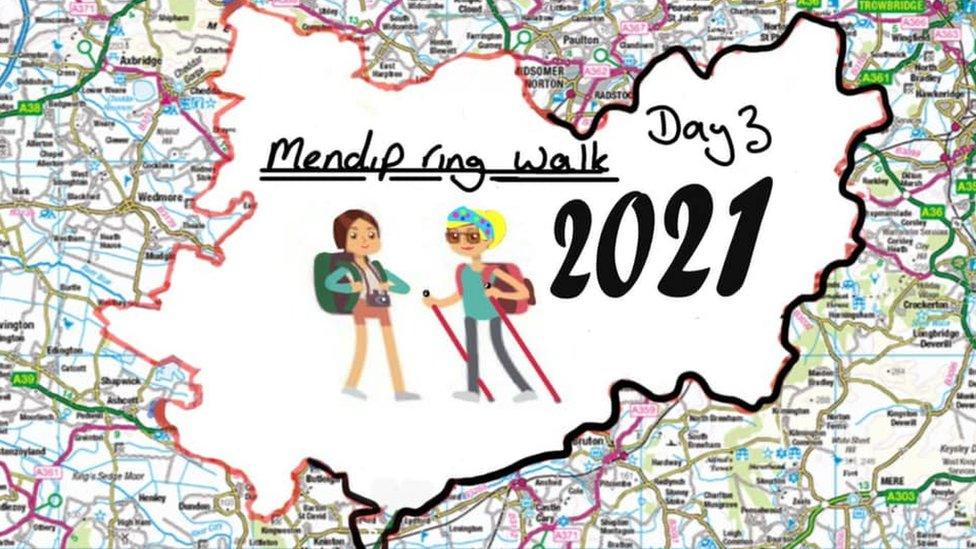
On the third day the pair walked for 10 hours
Annabel first heard about the project to end period poverty when St Peter's Life-Line twinned her school in Butleigh with St Peter's School in the rural village of Kajuki, Kenya.
The pupils were part of a pen-pal project but Annabel wanted to do more to help the young girls she was corresponding with.
Her mother said she was sure her daughter has been an "inspiration to many".
She said: "Annabel is doing amazingly well considering she is only 12 and we started training last October.
"She's been out every weekend with me trudging through wind, rain, snow and a lot of mud whilst lots of her friends would've been in bed or in front of the computer."
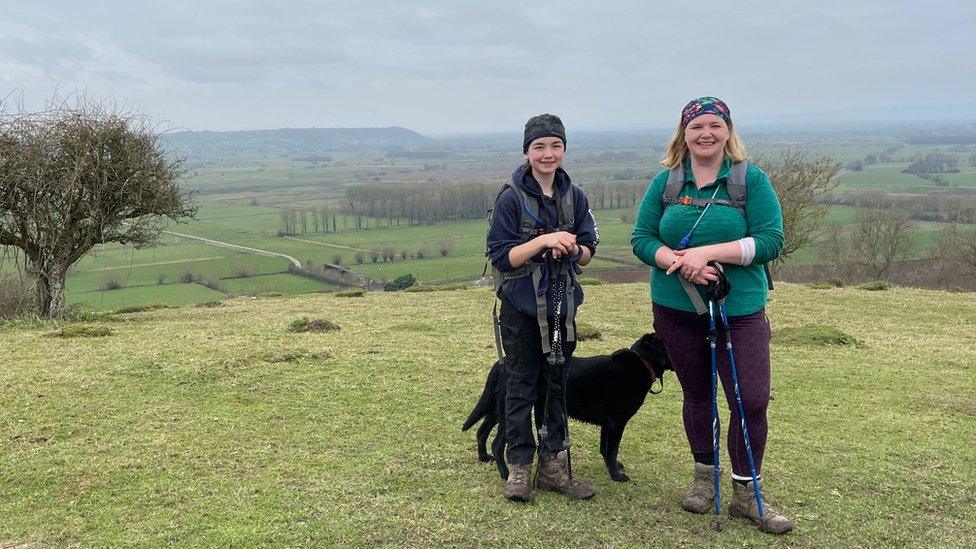
Emma said: "It started out as a joke and then we just ran with it"
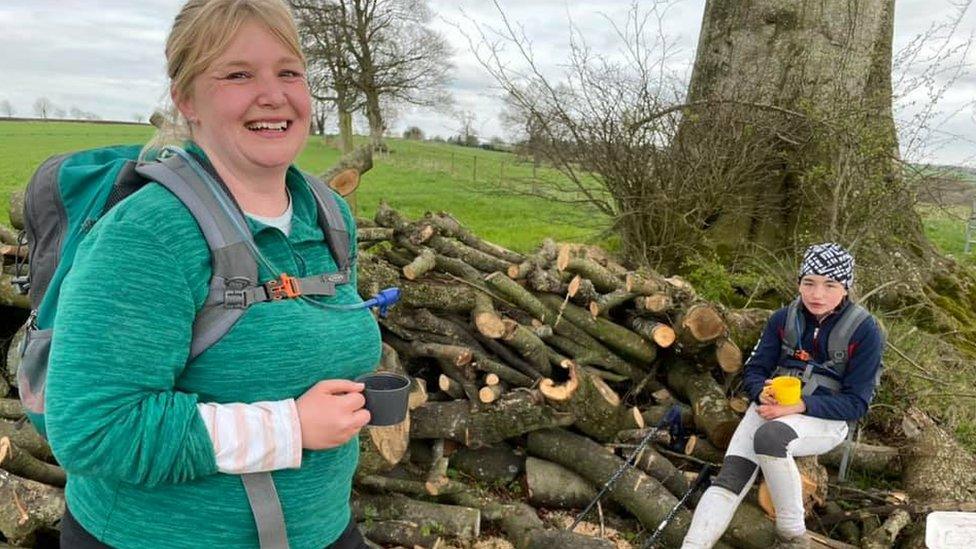
Annabel said she wanted to help the girls in Kenya "who don’t have access to sanitary products"
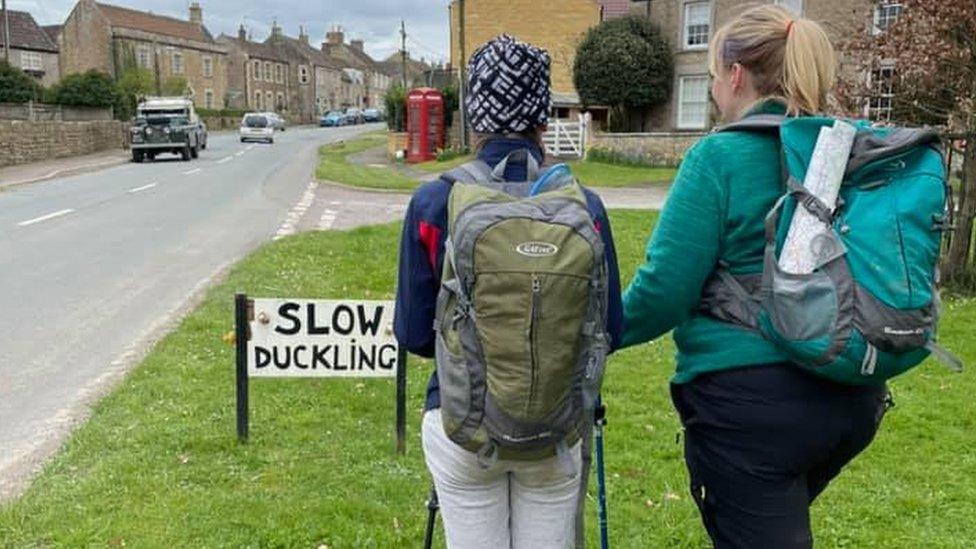
Emma said: "She's been out every weekend with me trudging through wind, rain, snow and a lot of mud"
She added: "we've done a lot of training and physio to get where we are today."
St Peter's Life-Line head David Baldwin said Emma and Annabel's "hard work" meant young women would be able to go to school during the week they were having a period.
He said: "To put it into context, a sanitary pad costs three-and-a-half pence to make, so you can imagine how many we can now give to the girls."

Follow BBC West on Facebook, external, Twitter, external and Instagram, external. Send your story ideas to: bristol@bbc.co.uk , external
Related topics
- Published8 April 2021
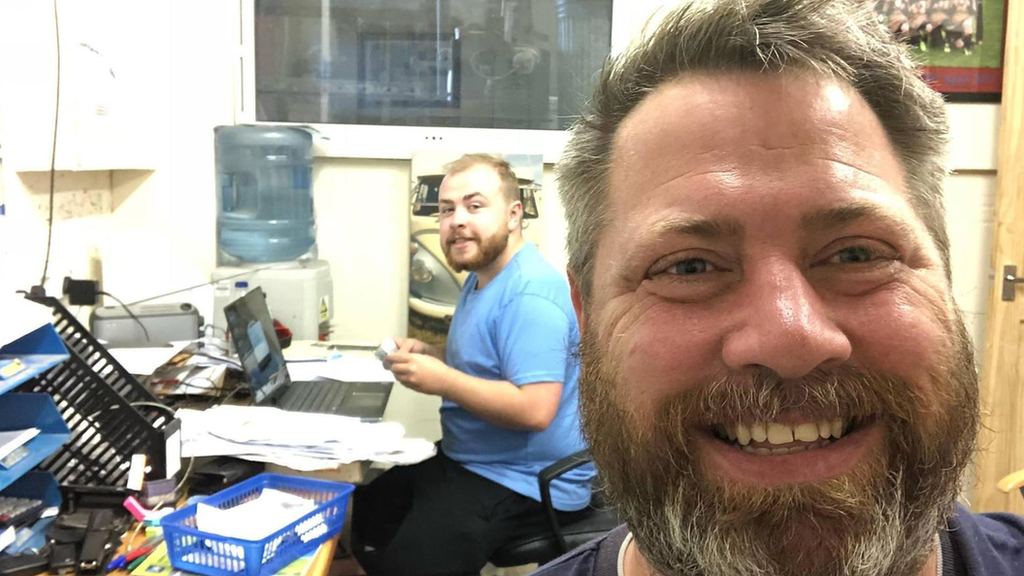
- Published3 March 2021
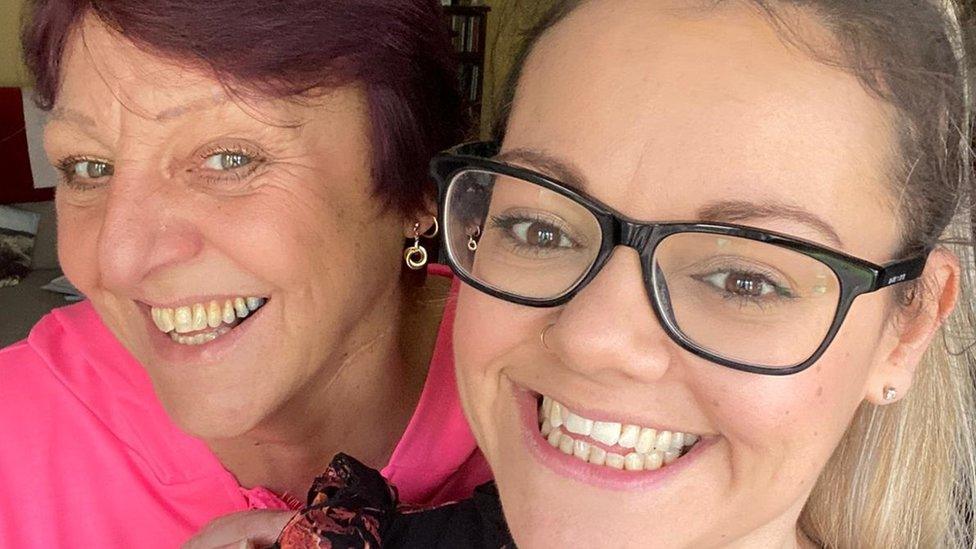
- Published2 January 2021
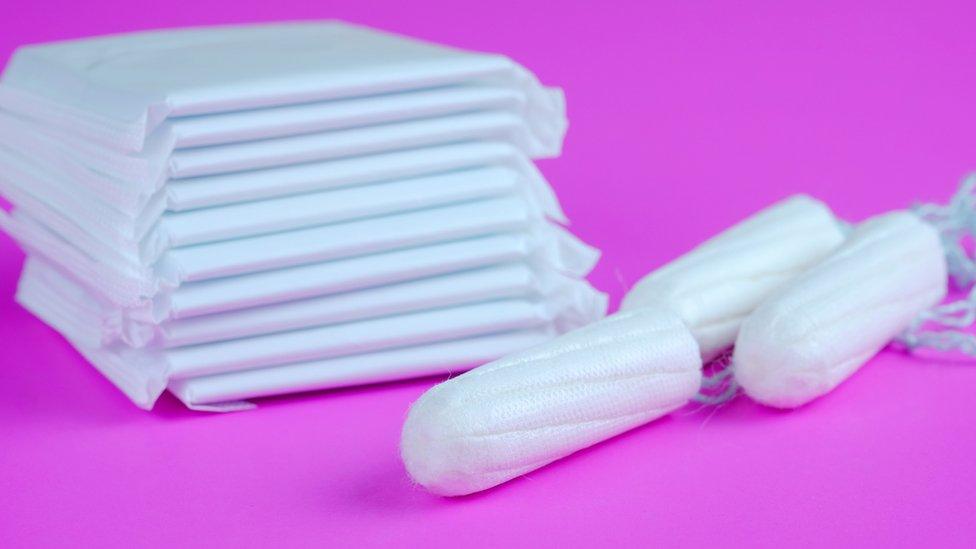
- Published1 January 2021
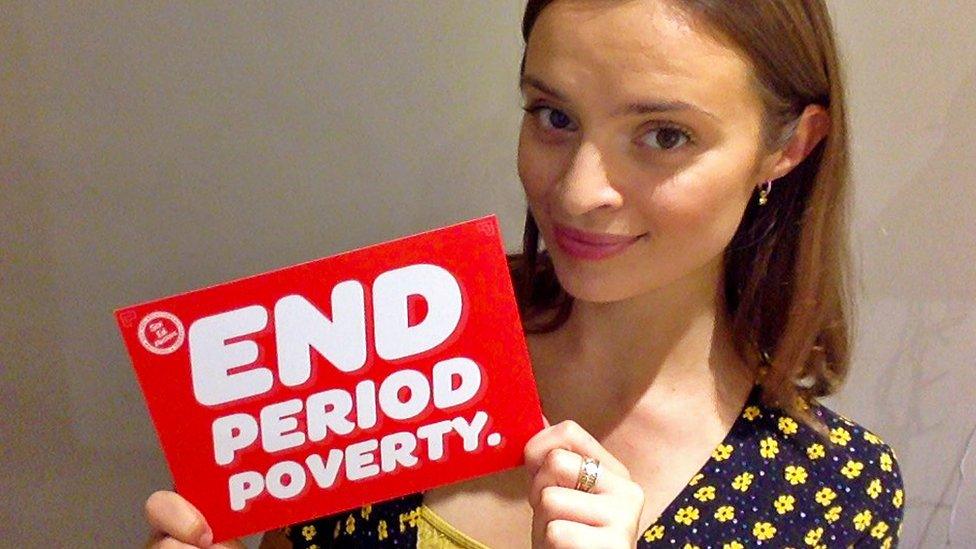
- Published3 August 2019
